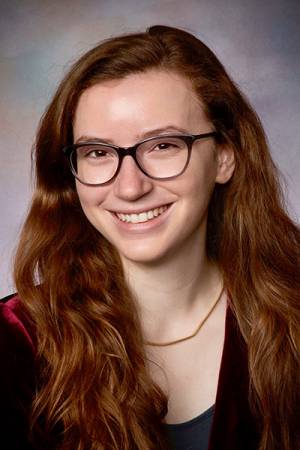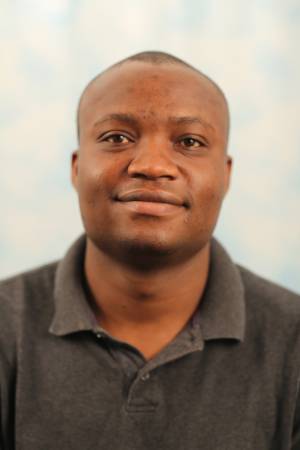Student Talks
Dynamic Multi-Objective Trajectory Planning for Mobile Robots
Abstract: Robotic explorers play a crucial role in acquiring data from areas that are difficult or impossible for humans to reach. Whether for planetary exploration, search and rescue missions, agriculture, or other scientific exploration tasks, these robots can utilize pre-existing knowledge of the terrain to navigate effectively. In search- and coverage-oriented scenarios, robots must consider [...]
Motion planning for manipulation under pose uncertainty using contacts
Abstract: Numerous manipulation tasks, such as plug insertion and pipe assembly, demand an extremely high level of precision in pose estimation. Even minor errors, on the order of 2mm, can lead to task failure. While robots often rely on vision for object detection and localization, achieving consistent, high-precision localization using visual methods is not always [...]
Robust Off-road Wheel Odometry with Slip Estimation
Abstract: Wheel odometry is not often used in state estimation for off-road vehicles due to frequent wheel slippage, varying wheel radii, and the 3D motion of the vehicle not fitting with the 2D nature of integrated wheel odometry. This paper proposes a novel 3D preintegration of wheel encoder measurements on manifold. Our method additionally estimates [...]
Optimal Modular Robot Design for Mobile Manipulation in Agriculture
Abstract: Although agriculture is a highly mechanized industry, numerous sectors like horticulture and floriculture heavily depend on manual labor because they require safe handling of plants and produce that can only be left to humans. However, many research and commercial robots have succeeded in several challenging dexterous manipulation tasks like harvesting, pruning, and plant health [...]
Aligning Robot Task and Interaction Policies to Human Values
Abstract: The value alignment problem considers how robots can learn to behave in accordance with human values. Today, robot learning paradigms enable humans to provide data (e.g., preference labels or demonstrations), which the robot uses to update its behavior (e.g., reward model or policy) to be closer to the human’s values. However, the current paradigm [...]
Accelerating Robot Task Learning with Large Pretrained Models and Internet Data
Abstract: Large pre-trained models and internet data sources are key to general and efficient robot task learning. However, learning contact-rich behaviors, semantic task constraints, and robust task planning from internet data sources remains an open challenge. This proposal seeks to make progress towards a general robot task learning system leveraging pre-trained models and internet data. [...]
A Modularized Approach to Vision-based Tactile Sensor Design Using Physics-based Rendering
Abstract: Touch is an essential sensing modality for making autonomous robots more dexterous and allowing them to work collaboratively with humans. In particular, the advent of vision-based tactile sensors has resulted in efforts to design them for different robotic manipulation tasks. However, this design task remains a challenging problem. This is for two reasons: first, [...]
Towards Universal Place Recognition
Title: Towards Universal Place Recognition Abstract: Place Recognition is essential for achieving robust robot localization. However, current state-of-art systems remain environment/domain-specific and fragile. By leveraging insights from vision foundation models, we present AnyLoc, a universal VPR solution that performs across diverse environments without retraining or fine-tuning, significantly outperforming supervised baselines. We further introduce MultiLoc, and enable [...]
Enhancing Model Performance and Interpretability with Causal Inference as a Feature Selection Algorithm
Abstract: Causal inference focuses on uncovering cause-effect relationships from data, diverging from conventional machine learning which primarily relies on correlation analysis. By identifying these causal relationships, causal inference improves feature selection for predictive models, leading to predictions that are more accurate, interpretable, and robust. This approach proves especially effective with interventional data, such as randomized [...]
GNSS-denied Ground Vehicle Localization for Off-road Environments with Bird’s-eye-view Synthesis
Abstract: Global localization is essential for the smooth navigation of autonomous vehicles. To obtain accurate vehicle states, on-board localization systems typically rely on Global Navigation Satellite System (GNSS) modules for consistent and reliable global positioning. However, GNSS signals can be obstructed by natural or artificial barriers, leading to temporary system failures and degraded state estimation. On the [...]
Scaling up Robot Skill Learning with Generative Simulation
Abstract: Generalist robots need to learn a wide variety of skills to perform diverse tasks across multiple environments. Current robot training pipelines rely on humans to either provide kinesthetic demonstrations or program simulation environments with manually-designed reward functions for reinforcement learning. Such human involvement is an important bottleneck towards scaling up robot learning across diverse [...]
Simulation as a Tool for Conspicuity Measurement
Abstract: The use of unmanned aerial vehicles (UAVs) for time critical tasks is becoming increasingly popular. Operators are expected to use information from these swarms to make real-time and informed decisions. Consequently, detecting and recognizing targets from video is extremely pivotal to the success of these systems. At greater altitudes or with more vehicles, this [...]
VP4D: View Planning for 3D and 4D Scene Understanding
Abstract: View planning plays a critical role by gathering views that optimize scene reconstruction. Such reconstruction has played an important part in virtual production and computer animation, where a 3D map of the film set and motion capture of actors lead to an immersive experience. Current methods use uncertainty estimation in neural rendering of view [...]
Unlocking Generalization for Robotics via Modularity and Scale
Abstract: How can we build generalist robot systems? Looking at fields such as vision and language, the common theme has been large scale end-to-end learning with massive, curated datasets. In robotics, on the other hand, scale alone may not be enough due to the significant multimodality of robotics tasks, lack of easily accessible data and [...]
Automating Annotation Pipelines by leveraging Multi-Modal Data
Abstract: The era of vision-language models (VLMs) trained on large web-scale datasets challenges conventional formulations of “open-world" perception. In this work, we revisit the task of few-shot object detection (FSOD) in the context of recent foundational VLMs. First, we point out that zero-shot VLMs such as GroundingDINO significantly outperform state-of-the-art few-shot detectors (48 vs. 33 AP) [...]










